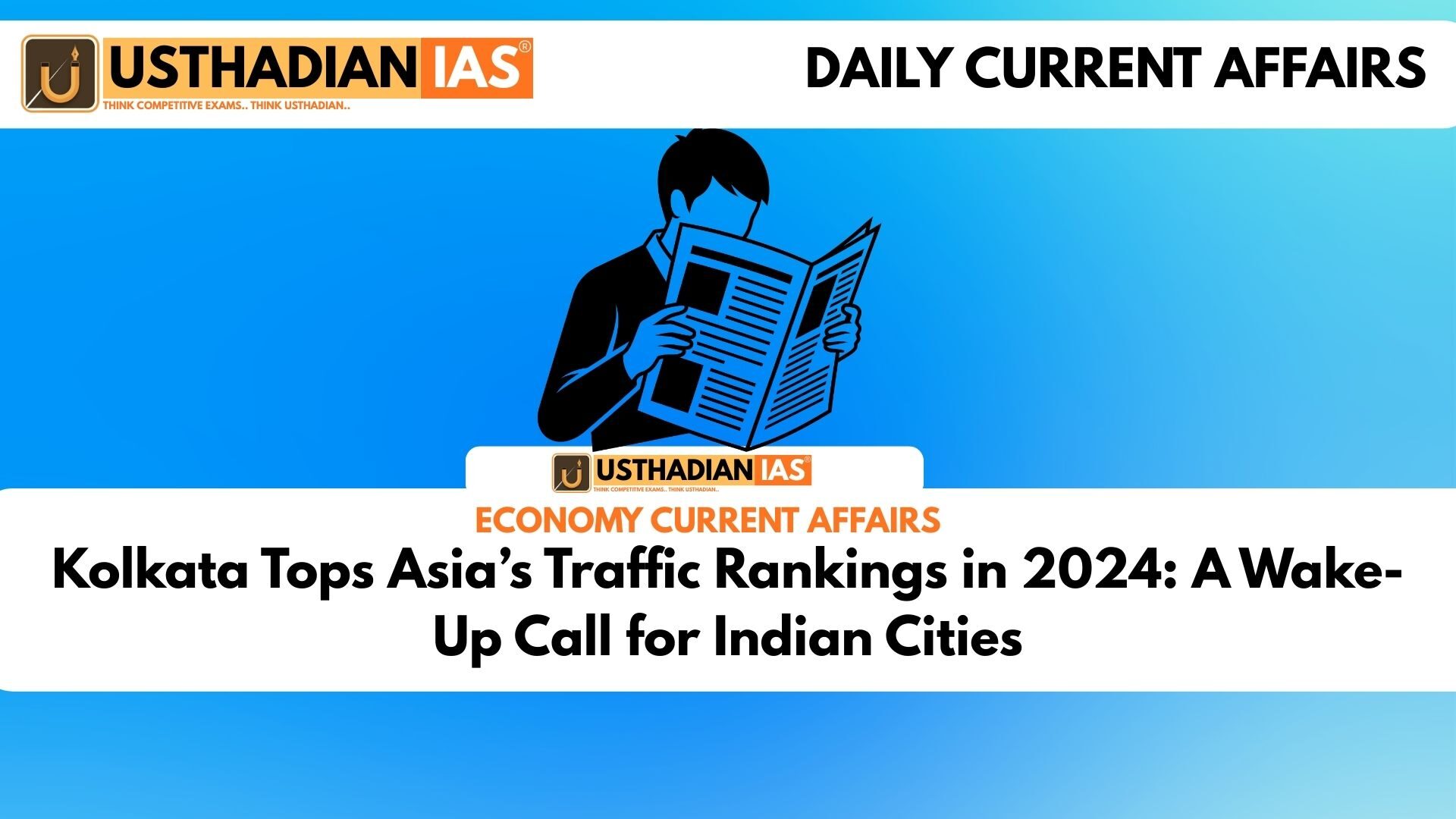When Travel Feels Like a Standstill
Kolkata Tops Asia’s Traffic Rankings in 2024: A Wake-Up Call for Indian Cities : In 2024, Kolkata was officially ranked Asia’s most congested city—and second globally—due to its soaring traffic delays. On average, a person in Kolkata took 34 minutes and 33 seconds to travel just 10 kilometres, a stretch that ideally should take less than half that time. For many residents, this wasn’t breaking news—it was daily life. But global recognition of the issue has forced a broader conversation on what’s going wrong in India’s cities.
Three Indian Cities in Global Top Five
Kolkata wasn’t alone. Bengaluru and Pune also featured in the world’s top five most congested cities, with Bengaluru clocking a delay of 34 minutes and 10 seconds and Pune at 33 minutes and 22 seconds. Even more alarming is the annual time lost in traffic—a shocking 117 hours in Bengaluru, followed by 110 in Kolkata and 108 in Pune. Imagine spending nearly five entire days every year just stuck on the road.
Hyderabad followed close behind with 85 hours lost, proving that the traffic crisis is not isolated but national.
Why Is Kolkata Leading the Traffic Crisis?
Kolkata’s charm lies in its colonial streets, bustling bazaars, and vintage trams. But the very traits that attract tourists also choke its traffic arteries. The city’s infrastructure has not evolved with its population and vehicle growth. Though it has India’s oldest metro system, the lack of last-mile connectivity and narrow roads causes major bottlenecks. Add to that urban sprawl with poor planning, and you have a city bursting at the seams.
Other Indian metros like Bengaluru are facing a different but parallel problem—rapid economic growth without matching infrastructure upgrades. A small downpour or construction block can trigger city-wide chaos.
Policy Lessons and Global Comparisons
It’s clear that flyovers and wider roads alone aren’t enough. Indian cities need smarter solutions:
- Better public transport with reliable schedules and integration between buses, metros, and auto-rickshaws.
- Shared mobility options like carpooling and bike rentals to cut solo vehicle trips.
- AI-based traffic signals and real-time monitoring to reroute traffic smartly.
- Walking and cycling infrastructure to promote eco-friendly mobility.
Cities like Singapore and Tokyo have used congestion pricing, limited vehicle registrations, and seamless metro systems to keep traffic under control. India must consider adapting such successful models before congestion becomes the default.
STATIC GK SNAPSHOT FOR COMPETITIVE EXAMS
| Topic | Detail |
| Most Congested City in World (2024) | Barranquilla, Colombia (36 min 06 sec per 10 km) |
| Most Congested City in Asia (2024) | Kolkata, India (34 min 33 sec per 10 km) |
| Indian Cities in Global Top 5 | Kolkata, Bengaluru, Pune |
| Annual Time Lost in Traffic (Top Cities) | Bengaluru: 117 hrs, Kolkata: 110 hrs, Pune: 108 hrs, Hyderabad: 85 hrs |
| London’s Rank in 2024 | Fifth globally |
| Source of Report | International Traffic Congestion Ranking Report 2024 |
| Policy Suggestion Models | Singapore (congestion pricing), Tokyo (metro-bus integration) |
| Key Focus Areas | Urban Planning, Public Transport, Environmental Impact |








